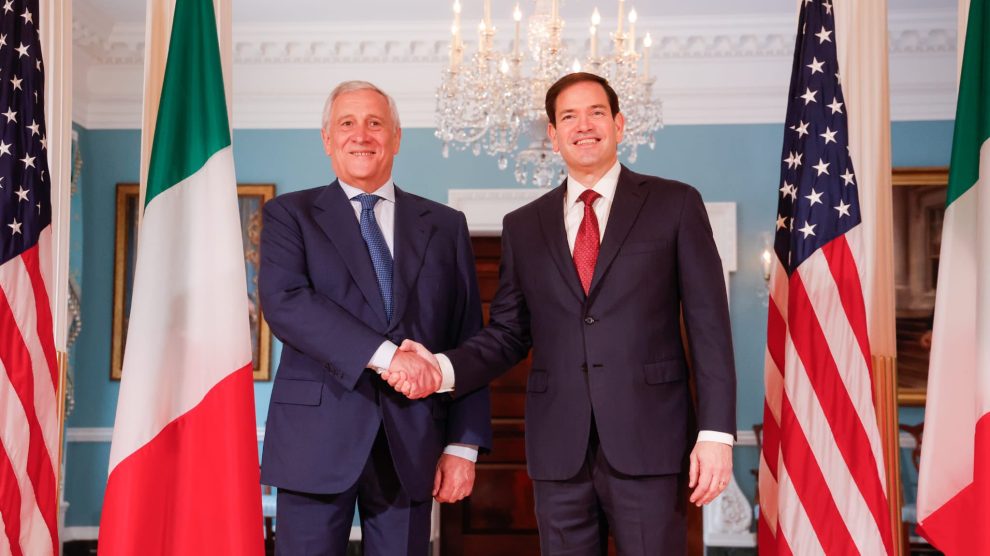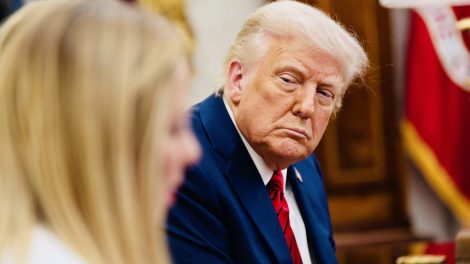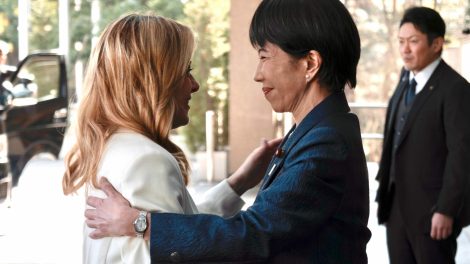Decoding the news. Italian Deputy Prime Minister and Foreign Minister Antonio Tajani met in Washington with Secretary of State Marco Rubio and several senior officials from the Trump administration.
- The meetings aligned diplomatic efforts and shared concerns, highlighting areas where the U.S. expects Italy’s partnership, notably in countering China’s growing presence in the Mediterranean region.
Shared priorities. The U.S. readout is brief but pointed: it highlights the Middle East, the war in Ukraine, and — crucially — shared priorities on China and Latin America.
- Here, agendas overlap: Washington views China’s global activities as increasingly competitive, and Italy as both a natural observer — but also a potential gateway for influence.
- Rome holds direct sway in the Mediterranean, where China continues to expand investment through the Belt and Road Initiative (BRI), and indirect influence in Latin America, where large Italian communities are embedded in countries now targeted by Beijing’s diplomatic and economic expansion.
Yes, but… The Italian readout does not mention China, reflecting Rome’s usual posture: firm on substance and cautious messaging. Italy prefers not to broadcast its critical stance, aiming to avoid an open rupture with Beijing.
- Meanwhile, China has become a non-negotiable red line for U.S. figures like Secretary Rubio, including in the Mediterranean.
- Still, other administration voices—including President Donald Trump—are reportedly engaging with Beijing to explore a broader, trade-based deal.
Italian angle. Italy put three strategic priorities on the table during Tajani’s Washington visit:
- On Ukraine, Tajani reaffirms support for Kyiv’s defence and postwar reconstruction;
- On Gaza, calling for an immediate ceasefire, the release of hostages, and the relaunch of Italy’s Food for Gaza initiative;
- On Libya, warning of destabilisation risks and Russia’s growing footprint, particularly the prospect of a naval base in Tobruk.
What we’re watching. Italy and the U.S. are expected to strengthen strategic coordination in new areas of shared interest, starting with China and the Mediterranean.
- “Guided by our common values, we work together for peace and stability in the main global crises,” Tajani stated.
- Italy remains engaged at the EU level to advance the transatlantic trade dialogue, avoid new barriers, and support business on both sides of the Atlantic.
- Rome’s role in following up on the Ukraine Reconstruction Conference — and potential participation in future diplomatic formats supported by the U.S. — will likely grow, leveraging Italy’s position as a bridge-builder and balancing force, a role that Washington continues to value.





